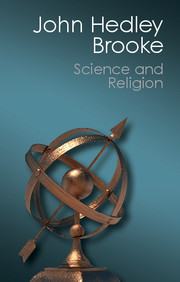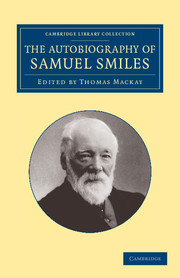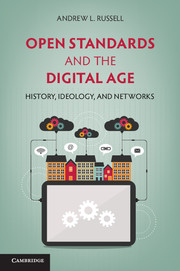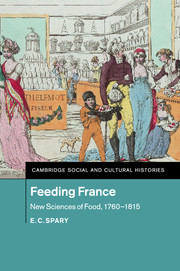Refine search
Actions for selected content:
13588 results in History of science and technology
Frontmatter
-
- Book:
- The Life of Thomas Telford, Civil Engineer
- Published online:
- 05 November 2014
- Print publication:
- 17 July 2014, pp i-ii
-
- Chapter
- Export citation
DISCOURS PRÉLIMINAIRE
-
- Book:
- Description des expériences de la machine aérostatique de MM. de Montgolfier
- Published online:
- 18 December 2014
- Print publication:
- 17 July 2014, pp vii-xxxv
-
- Chapter
- Export citation
Expérience faite à Lyon par M. de Montgolfier l'aîné
-
- Book:
- Description des expériences de la machine aérostatique de MM. de Montgolfier
- Published online:
- 18 December 2014
- Print publication:
- 17 July 2014, pp 293-294
-
- Chapter
- Export citation
LIST OF ILLUSTRATIONS
-
- Book:
- The Life of Thomas Telford, Civil Engineer
- Published online:
- 05 November 2014
- Print publication:
- 17 July 2014, pp xiii-xiv
-
- Chapter
- Export citation
PREFACE
-
- Book:
- The Life of Thomas Telford, Civil Engineer
- Published online:
- 05 November 2014
- Print publication:
- 17 July 2014, pp iii-iv
-
- Chapter
- Export citation
CHAPTER XIII - DOCKS, DRAINAGE, AND BRIDGES
-
- Book:
- The Life of Thomas Telford, Civil Engineer
- Published online:
- 05 November 2014
- Print publication:
- 17 July 2014, pp 280-291
-
- Chapter
- Export citation
Expériences faites avec de petits Ballons en peau de beaudruche
-
- Book:
- Description des expériences de la machine aérostatique de MM. de Montgolfier
- Published online:
- 18 December 2014
- Print publication:
- 17 July 2014, pp 22-28
-
- Chapter
- Export citation
SUPPLÉMENT
-
- Book:
- Description des expériences de la machine aérostatique de MM. de Montgolfier
- Published online:
- 18 December 2014
- Print publication:
- 17 July 2014, pp 303-306
-
- Chapter
- Export citation
Description de la caisse à air inflammable, représentée Planche II
-
- Book:
- Description des expériences de la machine aérostatique de MM. de Montgolfier
- Published online:
- 18 December 2014
- Print publication:
- 17 July 2014, pp 297-299
-
- Chapter
- Export citation
Du caoutchouc, connusous le nom de gomme élastique, & de la maniere de dissoudre cette Substance végétale
-
- Book:
- Description des expériences de la machine aérostatique de MM. de Montgolfier
- Published online:
- 18 December 2014
- Print publication:
- 17 July 2014, pp 190-195
-
- Chapter
- Export citation
ERRATA
-
- Book:
- Description des expériences de la machine aérostatique de MM. de Montgolfier
- Published online:
- 18 December 2014
- Print publication:
- 17 July 2014, pp 306-306
-
- Chapter
- Export citation
CHAPTER XI - TELFORD AS A ROAD-MAKER
-
- Book:
- The Life of Thomas Telford, Civil Engineer
- Published online:
- 05 November 2014
- Print publication:
- 17 July 2014, pp 245-261
-
- Chapter
- Export citation
Reinventing machines: the transmission history of the Leibniz calculator
-
- Journal:
- The British Journal for the History of Science / Volume 48 / Issue 1 / March 2015
- Published online by Cambridge University Press:
- 14 July 2014, pp. 123-146
- Print publication:
- March 2015
-
- Article
- Export citation

Science and Religion
- Some Historical Perspectives
-
- Published online:
- 05 June 2014
- Print publication:
- 15 May 2014

The Autobiography of Samuel Smiles, LL.D.
-
- Published online:
- 05 June 2014
- Print publication:
- 06 May 2013
- First published in:
- 1905

Open Standards and the Digital Age
- History, Ideology, and Networks
-
- Published online:
- 05 June 2014
- Print publication:
- 28 April 2014

Feeding France
- New Sciences of Food, 1760–1815
-
- Published online:
- 05 June 2014
- Print publication:
- 20 May 2014
8 - The empire of habit
-
- Book:
- Feeding France
- Published online:
- 05 June 2014
- Print publication:
- 20 May 2014, pp 268-314
-
- Chapter
- Export citation
Index
-
- Book:
- Feeding France
- Published online:
- 05 June 2014
- Print publication:
- 20 May 2014, pp 395-418
-
- Chapter
- Export citation
6 - Making more out of meat
-
- Book:
- Feeding France
- Published online:
- 05 June 2014
- Print publication:
- 20 May 2014, pp 203-234
-
- Chapter
- Export citation
